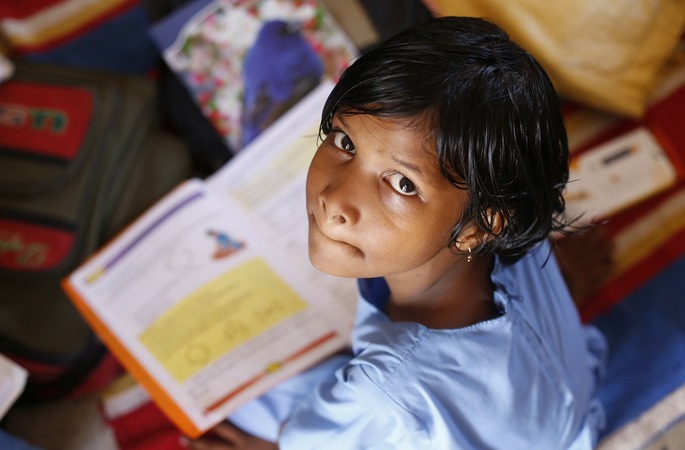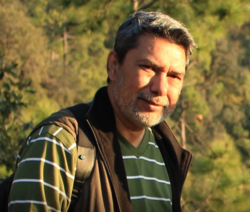If there is such a thing as a ‘slow’ learner, does it mean there are ‘slow’ teachers, ‘slow’ trainers, ‘slow’ Head Masters, ‘slow’ officials, ‘slow’ institutions, ‘slow’ systems?
It’s amazing to see how many people use the term ‘slow’ learner without realising how utterly WRONG it is.
Firstly it’s labelling.
Secondly, the norms themselves are not exactly precise – e.g. in exactly how many days or weeks, when taught in a specific manner, will a ‘normal’ child learn, say, two-digit addition?
Thirdly, the school often doesn’t look at what a child is ‘fast’ in otherwise – e.g. a ragpicker in sorting things out, a street child in mapping and understanding directions…
Simply put, there is actually no basis other than our own prejudice for coming up with the term ‘slow’ learner.
In 25 years of working in the field, I haven’t come across any child who would make you want to give up and say he or she is too ‘slow’ – although many were pointed out to me.
When brought into a non-threatening atmosphere, and encouraged to explore and speak out, such a child would display aspects he or she was engaged in or cared about – and that would be an entry point into enabling learning. Following which the ‘slowness’ would disappear and a ‘differentness’ would appear.
This label ‘slow’ is used by those (esp in the govt schools) who want to blame children, or make excuses for their not being able to find a way to communicate with the child. Or in private schools, who claim that ‘poor’ children are too slow to teach.
On the other hand, there are many – in the NGO sector, in private schools, in education companies – who actually make money out of ‘handling’ ‘slow’ learners! As if this is some unwanted job of society for which they should be paid extra or respected more…
As adults who have built a society based on discrimination, hierarchy and inequality, we probably DESERVE such institutions – but surely children don’t?
When it comes to dealing with this issue though, things are not so straightforward! After all, several policies and laws already exist. With the RTE (The Right of Children to Free and Compulsory Education Act), now being in place and fairly well-publicised, discrimination stories are much more common than they used to be. Will it lead to different behaviour or rooting out of biases in the class? Hard to say.
Many feel that teachers (and others in the system) need to be properly trained, and oriented in the aims of education, about multiple intelligences and the like. All true, but not sufficient.
What those involved in delivering education need is an understanding of human beings, of power relations and how bias/prejudice may be sourced from there, of hegemony, of how systems and structures and institution are loaded against the disadvantaged, and how we all are complicit in it and the willingness, courage and ability to take a stand as well as actually implement it in difficult circumstances.
In fact, discrimination is so common that we take it for granted that some children will not get to study or go to college or get a job or have any opportunities worth the name.
Why is it that even institutions that have an explicit policy in this regard fail to implement it? E.g. the ‘model’ schools within the NCERT ( The National Council of Educational Research and Training) campus that no NCERT faculty finds worth visiting, even though the NCF ( National Curriculum Framework) is based on issues of equity.
Several leading NGOs, too fall prey to this (often in their material or staff relations, or in their beliefs about govt staff), even though they espouse the cause of children and continuously talk of the aims of education (I’ve studied several of them closely and this is a professional opinion).
This whole idea of finding an ‘aims of education’ solution has been thought of and tried in many places by ‘purist’ educators – and hasn’t worked anywhere because education is, at heart, a political enterprise.
If you closely at their efforts, you find that after the initial phase things fizzle out or the groups themselves start reflecting strange kinds of divisions (e.g. academics vs practitioners).
So how will things change? I believe people need to EXPERIENCE a different set of relationships rather than merely see something in an intellectual manner, something that goes beyond being abstract concepts and relates to parts of one’s identity and social being, a more emotional issue if you will (not intellectual alone). It is the opportunity to reflect on this experience (at least compare it with what they usually come across) and the chance to practice some of this ‘new’ way of viewing the world that leads to change.
If a little success is experienced and encouragement/recognition met, that change starts to take root. My colleagues and I have been attempting this over the last decade at different levels across the country and elsewhere – and I believe it does make a difference.




leave a comment